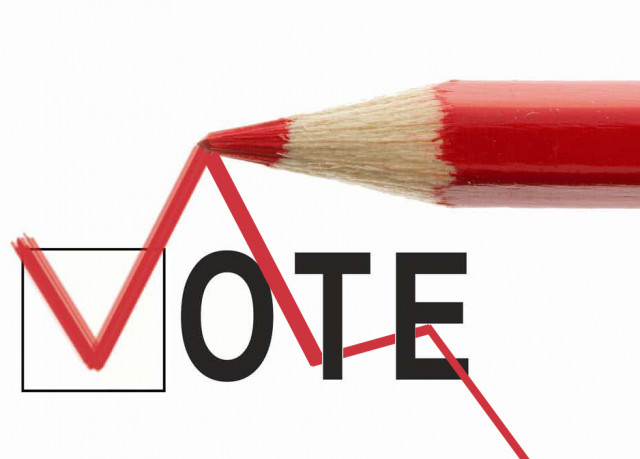Right to vote in IDP camps, paves way for fairer elections
Khyber residents had demanded the govt on several occasions to set up polling stations inside camps.

“Casting a vote in another location as a result of conflict and war is not against the law,” says CJ Khan. PHOTO: EXPRESS/FILE
As a result, the only place to attract voters is camps for internally displaced persons (IDPs). Prior to November 2012, displaced tribal residents sheltered in IDP camps were unclear on where to cast a vote in the upcoming general elections as according to the law, a person can vote at the place of his/her registration.
Khyber Agency residents, who were registered in their respective villages but were residing in IDP camps because of the ongoing military offensive against militants in their area, were uncertain about choosing their future leader and demanded the government on several occasions to set up polling stations inside the camps so they could take part in the upcoming general elections.

Kept under a prolonged curfew and having lived through three successive military operations since 2009, tribal residents breathed a sigh of relief when they were told last November that their right to vote would be accommodated in IDP camps.
The decision came from the Peshawar High Court (PHC) when Chief Justice (CJ) Dost Muhammad Khan took notice of the issue and summoned Election Commission of Pakistan (ECP) officials to appear before the court and explain what had been done to address the situation.
Officials of the National Database and Registration Authority (Nadra) were also directed to immediately issue duplicate computerised national identity cards (CNIC) if they were needed.
“Casting a vote in another location as a result of conflict and war is not against the law,” said CJ Khan. He also sought the intervention of Chief Election Commissioner Justice (Retd) Fakhruddin G Ebrahim to find a solution to the problem.
On December 12, 2012, displaced tribesmen discovered that laws prohibited people to cast their vote in a location other than where they were registered. Furthermore, legal advisor to the ECP Khyber-Pakhtunkhwa (K-P) chapter, Abdul Rehman noted that amending these rules would prove difficult because assemblies would soon be dissolved in preparation of the elections.
The courts, however, seemed to give authorities no space when on January 22 Rehman was directed to immediately send a summary requesting the president that the laws be relaxed.
It took around 15 days to make a decision. Finally, on March 7, Rehman conveyed a message to the PHC that stated the federal government had been asked to amend the law in favour of displaced tribesmen so that they could avail their right to vote.
Holding polls for around 0.1 million displaced registered voters from NA-46 (Bara) will not only help tribal residents cast their vote but also help hold truly free and fair elections. This is especially true for Khyber Agency where the law and order situation may influence elections in majority of the agency’s areas.
Published in The Express Tribune, March 11th, 2013.













COMMENTS
Comments are moderated and generally will be posted if they are on-topic and not abusive.
For more information, please see our Comments FAQ